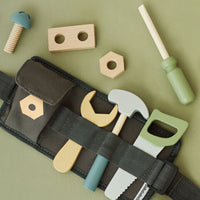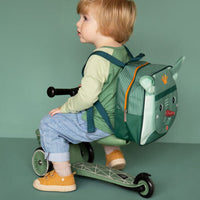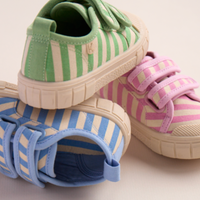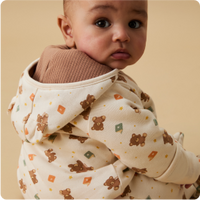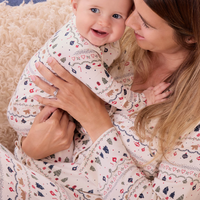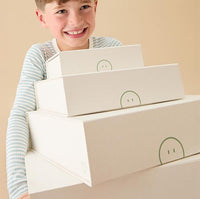Feminine care after birth: The bits that nobody talks about

Your body will go through many changes after birth, including your feminine area, but that doesn't mean your vagina will never be the same again. Lauren from My Baba goes through why you shouldn't be worried about looking after your lady garden.

If you’ve already read plenty of ‘what really happens after birth?’ and ‘how your vagina changes after birth’ articles, you’ll agree that they’re almost enough to put you off going through pregnancy altogether. We imagine if you’re reading this, it’s likely too late to turn back now. Whether you’re expecting or have given recently birth and are wondering ‘what the heck?’, here’s our guide to feminine care and how the not-so-glamourous parts aren’t as terrifying as they may first sound.
most parts heal naturally
Rather than worrying you that your vagina will fall apart, let’s start with the things that actually heal themselves. Fortunately, for the most part, your vagina is pretty self-sufficient and will eventually spring back into shape.
tears and stitches
We’ve all heard the horror stories, but tears and stitches should be the least of your worries. Any tears that occur to the vagina or perineum (the part between the vagina and anus) will usually be stitched up by the doctor in the delivery room. It’s likely you’ll be under epidural anaesthetic at this point - so don’t sweat it. What’s more, the stitches will dissolve on their own after a few weeks.
size, shape and strength
It’s unlikely your vagina will return to exactly how it was before giving birth, but it does rejuvenate itself. After the baby has come through, there is bound to be bruising and swelling, all of which will start to reduce and heal within a few days. The 10cm dilation, which aids your baby’s passage, will also reduce back to normal soon after birth.
Your muscles that surround your vagina will be sore and tender, but after plenty of rest and relaxation aching and swelling will be reduced. Read on to learn how pelvic floor tips can speed up this process.
dryness
After birth your oestrogen hormone levels will drop significantly to prepare your body for breastfeeding and aid milk production. The flip side of this is that you may experience vaginal dryness and low libido, due to lack of this hormone. This will return to normal post breastfeeding.
making things easier
You’re bound to be sore and exhausted - let’s not sugar coat that part. Stretching, bruising, and soreness can all be tackled with a little TLC. Try, as much as possible, to get back on track with a normal routine: eat healthily, drink plenty of water, and rest when you can.
sleeping
We respect that sleep isn’t always a given with a newborn, but allowing yourself to get plenty of rest is vital after birth. Allow your partner to take charge of parenting duties where they can and let them wait upon you a little! As with any form of overexertion, rest is a key part of the revitalising and healing process.
soreness
Your lady parts are going to be tender, more so than you may experience on your period. Adding witch hazel or aloe vera to your sanitary towels will help. Have ice packs at the ready too: wrap them up in an old t-shirt or towel. If you want to go a step further, check out this padsicle tutorial: a cross between a pad and ice pack for the ultimate soothing experience! You can thank us later.
Obviously over the counter painkillers are an option too, but double check with your doctor to see if this will affect breastfeeding or your baby. Ibuprofen can help to reduce pain, while aspirin can work too but may increase bleeding. Always check with your doctor!
hygiene
If you’ve been stitched up (and if you haven’t!) hygiene down there is imperative. We recommend getting hold of a perineal irrigation bottle. Use this to douse your vagina after urinating to ensure you’re clean at all times. This will reduce burning and risk of any infection. Pat with toilet roll, don’t rub as this could cause further inflammation and soreness.

dealing with common problems
Now you know the basics, and what your body can tend to by itself, here are a few things that you’ll encounter and how to tackle them.
bleeding
It’s inevitable after birth that your body will need to lose a lot of blood. Just like your period, your vagina will shred its lining. Expect a heavy few days followed by light discharge, which can last for 4-6 weeks. Stock up on sanitary towels!
constipation
Nobody talks about it, but constipation is way more common than you’d think after giving birth. If you’ve suffered with it throughout pregnancy, it’s almost over, we promise! Right after giving birth, start taking a stool softener such as prune or aloe vera juice to ease things through your bowels. Water and fibre will help keep you regular. Don’t strain and try to force it, just be patient.
Haemorrhoids aren’t a stranger to pregnant women or those who have given birth either. These swollen veins in the rectum can be caused by straining and having a baby put pressure on your abdominal veins. Ice packs will help to reduce the swelling, as will taking warm baths.
incontinence
It isn’t uncommon to come home stocked up with mesh panties (for holding everything in place) and be calling at the shop for some panty liners too. This is something that will clear up within a few weeks while your body is healing. If, on the other hand, you’re struggling to pee, perhaps due to the stitches, try pouring warm water over your vulva.
getting back to normal
Without doubt you’ll want to be back on your feet and back to normal as soon as possible. It really is a process that you can’t rush.
exercising
Pelvic floor exercises can help pre and post labour. Keeping your vaginal area as toned and taut as you can during pregnancy since this can really help ease the birth and can help to prevent tearing. We recommend continuing with Kegel exercise post birth, as it will help reduce incontinence and improve your sex life.

sex
It really varies in time frames when you’ll be ready for sex after the birth; it could be a month, it could also be six months. As we’ve mentioned, breastfeeding can lower libido, so don’t feel pressured. Be open with your partner and be patient while your body returns to normal. Don’t feel bad when your mum friends claim to be back at it almost immediately after!
if anything feels unusual
prolapse
Although relatively rare, prolapse can happen during or after birth. This is where giving birth and all the pressure of pushing causes your pelvic organs to drop down into your vagina. You’ll be able to tell if this has happened by a bulge in your vaginal area or if you’re feeling the need to urinate a lot more. Your body can recover on its own from prolapse or you may need to seek medical treatment.
the six-week check-up
Anything else beyond what we’ve mentioned above you’ll have the opportunity to discuss at your six-week check up. Don’t forget if you are worried about anything please do get in touch with your health visitor before that first check. They’re always on hand and often very helpful.
Article written by Lauren. My Baba is a parenting blog offering expert tips and advice on parenting and pregnancy including guides and reviews of the latest baby kit and style for mums.The team provide the daily scoop on family, food and lifestyle; they’re not just experts at all things parenting. The site is brimming with the latest fashion trends, travel destinations, hottest restaurants, daily recipes, crafts, activities and fun days out for all the family.
Discover MORI's best sellers. Loved by parents, a collection of our softest baby & toddler essentials crafted in our softest organic fabrics.
SHOP BEST SELLERS



 100s of gift ideas
100s of gift ideas
